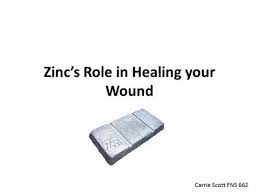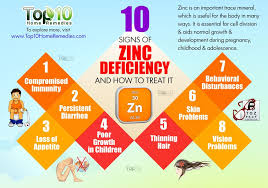Introduction:
The mineral zinc is present all over the body and helps with the healing of wounds and is a vital component of many enzyme reactions. Zinc is particularly important for healthy skin and is essential for a healthy immune system and resistance to infection.
Functions of Zinc:
- It plays a crucial role in growth and cell division where it is required for protein and DNA synthesis,
- In insulin activity,
- In the metabolism of the ovaries and testes,
- In liver function, as a component of many enzymes,
- Zinc is involved in the metabolism of proteins, carbohydrates, lipids and energy.
Zinc in our bodies:
- Our body contains about 2-3g of zinc.
- There are no specific storage sites known for zinc and so a regular supply in the diet is required.
- Zinc is found in all parts of our body, 60% is found in muscle, 30% in bone and about 5% in our skin.
- High concentrations are in the prostate gland and semen. Men need more zinc than women because male semen contains 100 times more zinc than is found in the blood.
What are the signs of Zinc deficiency?
- The first signs of zinc deficiency are impairment of taste,
- A poor immune response
- Hair loss,
- Diarrhea,
- Fatigue,
- Delayed wound healing
- Decreased growth rate and mental development in infants.
- Zinc supplementation helps skin conditions such as acne and eczema, prostate problems, anorexia nervosa, alcoholics and those suffering from trauma or post-surgery.
- Studies have shown that the use of zinc for prevents and shortens the duration of common cold or viral upper respiratory infection.
Vegetarian Dietary Sources of Zinc:
A vegetarian diet often contains less zinc than a meat based diet.
Good sources for vegetarians include dairy products, beans and lentils, yeast, nuts, seeds and wholegrain cereals. Pumpkin seeds provide one of the most concentrated vegetarian food sources of zinc.
Only 20% of the zinc present in the diet is actually absorbed by the body. Dietary fiber and phytic acid, found in bran, wholegrain cereals, pulses and nuts, inhibit zinc absorption. Cooking processes can reduce the adverse effects of both phytic acid and dietary fiber on zinc absorption. Baking can destroy over half the phytic acid in whole meal bread. Zinc deficiency occurs where a large part of the diet consists of unleavened bread. High levels of the toxic mineral cadmium can also prevent zinc absorption because these two minerals compete for absorption. Zinc is lost via the faeces, urine, hair, skin, sweat, semen and also menstruation.
Conclusion:
Zinc is a micro mineral needed in the diet on a daily basis, but only in very small amounts (50 milligrams or less). The other micro minerals that all humans must get from food are arsenic, boron, cobalt, copper, chromium, fluorine, iodine, iron manganese, molybdenum, nickel, silicon and vanadium.
Zinc is a very important micro-mineral that the body requires and deficiency leads to impairment of bodily and sexual growth.


